Westbridge Veterinary Referral Hospital

FAQ
What do all of those letters mean after the specialist’s name?
The VMD, DVM, DACVIM, DACVECC are abbreviations of various veterinary degrees. The University of Pennsylvania grants a ‘VMD’ while all other United States Colleges of Veterinary medicine grant ‘DVM’ degrees.
Here’s a few explanations of the abbreviations used to define the doctors on the WVRH staff
DACVIM: Diplomate, American College of Veterinary Internal Medicine
DACVS: Diplomate, American College of Veterinary Surgeons
DACVR: Diplomate, American College of Veterinary Radiology
DACVECC: Diplomate, American College of Veterinary Emergency and Critical Care
Some veterinarians choose to specialize in various areas including internal medicine, ophthalmology, cardiology, critical care, dermatology, surgery, and oncology. Specialists undergo considerable post-graduate training beyond the six to eight years of college education normally required to earn a veterinary degree. This post-graduate training includes a 1yr internship, 3 yr residency, and documented clinical experience that lays the groundwork for a candidate to take and pass the rigorous exam leading to Diplomate status. Less than 1% of all of the veterinarians in the United States are granted ACVIM status.
Why did my family veterinarian refer my pet to a specialist at the Westbridge Veterinary Referral Hospital?
There are many reasons for referring your pet. First and foremost is the dedication of your family veterinarian to the best interests of your pet. The referral may be for the utilization of specialized equipment that your family veterinarian may not have available.
For example, your pet might benefit from an examination with an endoscope or ultrasound machine. Or perhaps your pet has a complex illness that your family veterinarian feels would best be diagnosed by a specialist in internal medicine.
Will my family veterinarian be involved if my pet is treated at the Westbridge Veterinary Referral Hospital by a specialist?
We keep your family veterinarian updated on your pet’s progress on a regular basis. In addition to phone calls we forward a complete copy of the medical record and a referral letter so that your pet’s medical records will be complete.
Can my pet have its regular vaccines or other annual tests done at the Westbridge Veterinary Referral Hospital while he or she is at the hospital?
No. We feel that it is important that you maintain your relationship with your family veterinarian and request that annual exams be maintained at your regular pet health care facility. Our Internal Medicine specialists do not administer routine annual vaccines or blood tests (unless they are part of the indicated diagnostic testing for a particular problem).
What payment types are accepted at WVRH?
The types of payments we accept are as follows:
Cash
Debit
Discover
MasterCard
VISA
American Express
Currently, WVRH accepts CareCredit and Scratchpay. You can apply online for CareCredit at www.carecredit.com and www.scratchpay.com for Scratchpay. If you have questions about either payment option, click the links or contact our office directly for more details.
What can I expect if my pet requires hospitalization at WVRH?
If your pet requires hospitalization, WVRH will provide you with a written treatment plan that includes itemized costs of the proposed veterinary care. This care may include diagnostic testing, surgical procedures, nursing, and hospitalization. The plan will provide you with a cost range for the proposed services. The purpose of this written plan is to prevent any financial surprises which can occur when a final bill is generated.
WVRH requires that a deposit equal to 75% of the high end of the treatment plan be left in advance for all hospitalized patients. If the treatment plan needs to be revised as a patient's condition changes, you will be notified of any anticipated changes in your pet's treatment plan. If you are in a situation where you have limited financial resources, make sure to let us know. We will do our best to work with you to provide optimum care for your pet that fits within your means.
